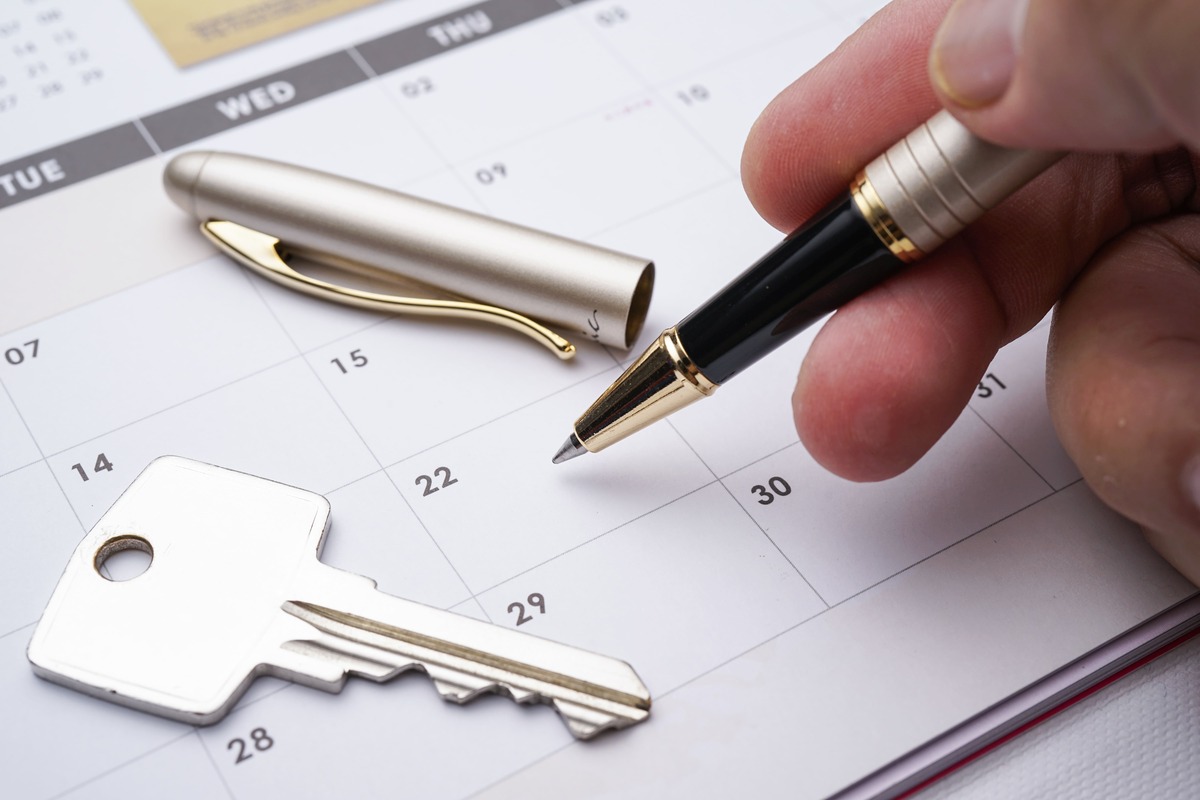- Compare agents
- Online valuation
- Explore my area
- Home toolkit
- News & guides


- Estate agents by area
- Sold house prices by area
- Estate Agent ValuationRequest an in-person valuation with an agent to discover your property's true market value.
- Online Valuation ToolGet a free instant estimate of your home's value.
- EPC CheckerFind out if your home has a valid Energy Performance Certificate.
- Listing MonitorAlready on the market? See how your online property advert is performing.
- Selling guides
- Estate agent guides
- Mortgage advice
- Conveyancing guides
- Property news See All News & Guides

Agent shortlist

HouseWorth
- Can I do my own conveyancing?
Conveyancing help and guides03 March 2021
Can I do my own conveyancing?
Rosie Hamilton
Writer & Researcher

Table of contents
Property transactions are expensive, and it can be tempting to try and save money wherever you can. One way some people consider is with 'DIY conveyancing'.
But, this route should not be travelled lightly. It's an incredibly time consuming way of saving a relatively small amount of money.
For many people there's a steep learning curve when it comes to getting to know all the relevant UK property law. It's also pretty risky: if you get anything wrong, you could face court action and be sued much more than you save.
Below we look at some of the things you'll have to contend with if you decide to do your own conveyancing as a buyer or a seller. We'll also provide some advice for getting through the property transaction process.
What is conveyancing?
Conveyancing is the legal name for the transfer of property ownership from one owner to another in the UK.
Contrary to popular opinion, there's a lot more to conveyancing than just completing forms and reviewing paperwork. It incorporates all the legal and logistical elements of passing ownership of a house from one person to another.
For more detail on and how much it usually costs, head here.
What does a conveyancer do for a seller?
When you're selling your home, a conveyancer will ensure the sale contract is in order, that the buyer you're selling to is legitimate. They'll also deal with any of the financial aspects of the sale on your behalf.
Your conveyancer plays a vital part in protecting your largest financial asset in this period of transition.
Some of the things a conveyancing solicitor will deal with when you're selling (and you would have to do yourself) include:
Checking the identity and financial situation of the buyer
Arranging searches with the relevant council or local authority
These will vary depending on where your house is located. Learn more about what searches you might need, and how much they cost, here.
- Assessing any potential legal issues that come up in surveys and searches - and advising on the best course of action
These could be things like: structural issues, or incorrect planning permission
- Assessing any issues that come up in leasehold agreements
These might be things like: service charges, ground rents, or restrictive covenants
Negotiating and writing the draft sale contract, before exchanging it with the buyer's conveyancer
Handling the transfer of money between all the relevant parties
Your conveyancer will pay any estate agents fees and outstanding mortgage amount, then transfer the rest to your bank account.
- Arranging the transfer deeds, and taking your details off the Land Registry Title for your property
Note: This is not an exhaustive list of all the elements involved in the conveyancing process. It also does not cover things that come up in more complicated property transactions, such as: selling a jointly-owned home, or a probate sale.

It takes 2 minutes.
Conveyancing for buyers
When you're buying a house, your solicitor will ensure you're aware of all of the terms of your purchase. This includes investigating what fees you might be liable for by owning the property, and assessing the results of surveys so that you know exactly what condition your new home is in. They'll also handle all the financial aspects of the sale.
Some of the things a licensed conveyancer will deal with when you're buying (and you would have to do yourself) include:
- Checks on both yours and the seller's identity
This will include checks to see if the seller is really the owner of the property you're trying to buy.
Providing advice on which searches you'll need, and ordering them from the relevant authority (usually your Council or Local Authority)
Financial checks
These checks are to make sure you have the right amount available for the purchase, or to review your mortgage lender's offer.
Reviewing the legal pack, and other relevant documents from seller’s solicitor
Reporting any concerns that come up in the surveys
Surveys might reveal a boundary dispute, or issues with the structure of the property, which could impact your mortgage eligibility, or your desire to live there.
Raising queries from the Property Information Form and the Fixtures and Fittings Form
Checking the seller’s contract
These contracts will outline your legal obligations as the buyer, and will usually incorporate the Law Society's Standard Conditions of Sale, but not set them out in full. If you choose to do your own conveyancing, make sure you have a good grasp of these Conditions before you agree to the seller's contract.
Arranging the formal exchange of contracts with the seller’s conveyancing solicitor
Agreeing a completion date with seller’s conveyancer
The completion date is the day the seller officially has to leave the property, and hand over the keys. It's also the day all monies are transferred.
- Preparing and sending the transfer deed & completion statement to seller’s conveyancer
Before completion your conveyancer will make a Land Registry search to check there've not been any changes to the seller's registered title. This will also 'freeze' the register so no further changes can be made until you submit the application for transfer.
Arranging financial transfers from you or your mortgage lender to the seller’s solicitor
Paying stamp duty on your behalf
Registering you as a new owner with the Land Registry
Note: This is not an exhaustive list of all the elements involved in conveyancing. It also does not cover those parts that come up in more complicated property transactions, such as: purchasing a commonhold, or buying a flat with an unmarried partner.
Can I do my own conveyancing?
Technically, it is possible to DIY your conveyancing - whether you're a buyer or a seller. But, there are a number of cases where doing so is either incredibly difficult, or not allowed. These include - but are not limited to:
- Buying or selling a house with a mortgage
Even if you decide you want to do your own conveyancing, most mortgage lenders will appoint their own solicitor or conveyancer to represent their position in the property transaction.
You'll usually have to cover your mortgage lender's conveyancing fee. This means you'll still have to pay for a licensed conveyancer, but you won't get any of the financial protections that come with actually hiring a legal representative yourself.
- Buying or selling a leasehold property
Leasehold contracts come with lots of additional conditions which lay out the responsibilities of the leaseholder and the freeholder. These include, among other: ground rent, restrictive covenants, maintenance responsibilities, and service charges. These additional terms - and the legal jargon and precedent that accompany them - can make these types of contracts much more difficult for someone without legal training to draft or review.
On top of this, there's the added complication of having to liaise with the freeholder, as well as managing your end of the transaction.
For more information about selling a leasehold, head here.
- Buying or selling a shared ownership, or 'Help to Buy' flat
Property transactions involving any of the government's 'Help to Buy' schemes are much more complicated than 'normal' sales. This is because they involve an additional contract with the government, and a slightly different financial arrangement.
For more information on Help to Buy properties, head here.
- Buying or selling a property as part of a chain
Many property sales take place as part of a 'chain'- where one or more people have to sell their current home in order to be able to afford their new property. Handling all the different parties involved in a chain requires a lot of skill, and is incredibly time consuming.
Why 'DIY conveyancing' isn't worth it
- The amount of money you save is small
One of the major reasons people attempt DIY conveyancing is because they believe it will save them money.
If you are purchasing a property, you will still need to pay for: searches, surveys, Stamp Duty, Land Registry fees, and any other disbursements that are required.
And, if your transaction involves a mortgage, it's likely that the mortgage lender will want to appoint their own solicitor, which you will have to pay for.
After all these costs have been covered, you end up saving very little - despite the level of work involved.
- The protection you lose is huge
Licensed conveyancers and solicitors are required to have professional negligence insurance in place. This covers the cost of legal action in the unlikely instance that anything goes wrong.
If you act as your own conveyancer, you will not be covered by this professional insurance. This means that if you do anything wrong, you could face covering the cost of legal action, or being sued if anything goes wrong.
- The learning curve is steep
If you decide to do your own conveyancing, it'll be necessary to get to grips with the basics of property law - something that qualified conveyancers have studied and worked on for a number of years.
- Requires a large time commitment
Once you've got a good understanding of the law surrounding property transactions, you'll also have to commit time to doing the actual conveyancing work for your sale or purchase.
Conveyancing is a time consuming job. Some estimations predict that the most basic sales (chain-free, mortgage-free, house sales) will require around 30 hours of work.
- It can make the process more difficult
Many conveyancing firms represent several clients at any one time, so won't have time to modify their approach for someone attempting to be their own conveyancer.
Some DIY conveyancers have reported feeling discriminated against by law firms. However, you must remember that conveyancers representing other parties in the chain are under no obligation to provide advice to you. They will expect you to be able to keep up with the standard pace of the conveyancing process - just as they would any other conveyancer involved.
Thinking about
selling your home?
Picking the right estate agent is vital for a successful sale. GetAgent makes choosing simple. Discover the best performing agents in your area.
- Free
- Data-driven
- No obligation
Thinking about
selling your home?
Picking the right estate agent is vital for a successful sale. GetAgent makes choosing simple. Discover the best performing agents in your area.
- Free
- Data-driven
- No obligation

Compare estate agents
It takes 2 minutes.
Our company
Get in touch
020 3608 6556
Our lines are closed
We are a company registered in England & Wales, company number 09428979.
Copyright © 2026 GetAgent Limited








